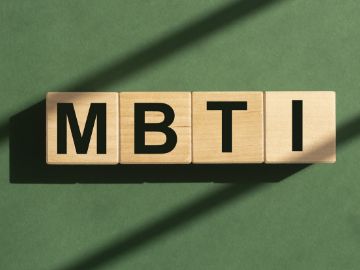What Is a Data Entry Job? Everything You Need to Know

When job searchers are asked, what is a data entry job? They frequently picture themselves sitting at a computer and entering text or numbers. Data entry jobs, however, require data entry skills that go far beyond typing speed and are found in a wide range of industries, from retail and sales to medical offices. Let's delve further into the field of data entry to define it, look at the many data entry roles, comprehend the requirements for the position, and look at the specifics of this line of work.
What is data entry?
The practice of entering data into digital formats like spreadsheets, databases, or document managers, such as names, figures, or descriptions, is known as data entry. Paper documents, digital files, and even electronic formats derived from photos and scanned files could all be examples of raw data. Ensuring data accuracy is essential since mistakes can have significant consequences for companies that depend on it for day-to-day decision making.
In fields like healthcare, banking, and the data entry industry itself, data entry is a fundamental procedure. For instance, employees in the retail and sales industry enter client data and inventory records every day. Online form filling, transcription, and database updating are just a few examples of several types of data entry.
The process of identifying letters from scanned insurance claims or medical reports frequently combines hands-on examination with optical character recognition (OCR) technology. To efficiently input, update, and arrange massive data sets, data entry professionals may rely on computer software such as Microsoft Excel or database management systems. Maintaining data integrity and improving workflow through effective data processing are the constant objectives.
To make the most out of your data entry career path or any professional journey, understanding your worth in the job market is key. Whether you're just starting out in data entry or planning your next move, our Personal Salary Report is a powerful tool for smarter financial planning and confident career decisions.
What is a data entry job?
Now that we have a broader understanding of data entry, let's clarify what a data entry job actually involves.
Completing tasks like entering patient or client information into a computer system, maintaining schedules, or classifying data in a way that facilitates smooth business operations are part of a data entry job. Many data entry jobs are available, including contract-based data entry projects that remote workers, full-time data entry clerk employment, and freelance data entry specialist opportunities frequently complete.
Managing data from paper documents or digital formats and moving it into structured systems, such as company databases, is the typical task of a data entry job. For instance, a data entry keyer might oversee accurately and quickly entering text or numerical data. In the majority of data entry roles, employees also make sure they are only inputting their own, verified, and approved data, which aids businesses in maintaining accurate and dependable datasets.
Data entry jobs' pay varies based on the business, required skill sets, and position complexity. In some data entry jobs, you're asked to do more than just input data; you're also expected to perform data validation to make sure the numbers or text represent accurate values. To handle confidential data like insurance claims or patient medical records, such roles might call for knowledge of data security measures. Retail and sales service teams utilize them to update company databases with product inventories or customer interactions, while industries such as healthcare depend on them for patient records and medical reports.
For duties like synchronizing digital and physical form, balancing voltages in database management systems, and using standard office equipment like scanners, printers, and fax machines, some data entry roles also require language skills or organizational skills. This involves transferring data from its physical form to electronic formats while ensuring that data organization avoids duplication or loss.
Data entry skills, job requirements, and experience
It takes a certain combination of speed, accuracy, and technological awareness to succeed in data entry jobs. Strong typing speed is one of the most crucial data entry skills, but a competent typist also has acute attention to detail. Verifying proper entries, identifying misaligned fields, and maintaining data integrity during data processing chores are all part of ensuring data accuracy.
Strong typing, computer, and organizational skills are essential for success in data entry jobs, especially when managing schedules or massive amounts of data. The ability to constantly maintain accuracy and minimize errors is essential for job searchers. Candidates who can ensure accuracy while meeting strict deadlines are also sought after by employers. Because job frauds are prevalent in this industry, exercise caution when searching online and make sure you're applying to a real organization.
Proficiency with tools such as Microsoft Excel, database management systems, and OCR technologies is crucial because many professions involve data entry software. Some employers require knowledge of spreadsheet formulas, macros, and data input forms. Others working in the healthcare sector would need to comprehend medical reports or insurance claims forms, which calls for further data entry certification or pertinent training.
A high school diploma is adequate for the majority of entry-level positions, as is completion of an office administration or data processing certificate program or on-the-job training. A data entry specialist position that handles intricate data entry projects can be unlocked for people aiming higher on the data entry career path by enrolling in office technology training programs or earning a data entry certification.
Trustworthiness is demonstrated by experience managing confidential data, such as company or patient records. Government and healthcare employers may seek candidates with experience in handling sensitive data and data security procedures. Organizational skills, the capacity to work under pressure, and some technical know-how to diagnose minor system faults or software bugs are additional desirable qualities.
FAQs
Here are some FAQS on a data entry job:
What are the duties of a data entry person?
A data entry clerk is responsible for a wide range of data entry tasks. Typing data from scanned files or paper documents into spreadsheets or database management systems is a common part of their workday. They may fix discrepancies in raw data or digital files, organize data, and validate entries through data validation. In addition to inputting, they might manage report data sets, protect confidential data, create reports with formulas or macros, or work with other team members to make sure that business operations don't stall because of incomplete or erroneous data.
What skills are required for data entry?
Strong typing speed, meticulousness, and a basic understanding of spreadsheet programs like Microsoft Excel are essential, according to U.S. labor statistics. Data entry clerks work in a variety of environments, including remote workplaces, government agencies, legal companies, and hospitals. They frequently handle a lot of confidential or urgent data. Therefore, a skilled data entry specialist must maintain accuracy, attention to detail, and familiarity with computer software such as Microsoft Excel or OCR capabilities in addition to typing speed.
They should be able to follow data validation procedures, be proficient with spreadsheets, and feel at ease with database management systems. Additionally crucial are strong organizational skills, the capacity to maintain concentration while processing data, and familiarity with handling confidential data. Basic knowledge of data security, remote work skills, or experience converting paper to digital formats may be required for some positions.
Which software is used for data entry?
Although there are many legal data entry jobs, there are also data entry scams that promise great salaries for little labor and frequently demand payment or an administrative fee to gain access to job listings that don't exist. Typically, scammers promise astronomical salaries for data entry jobs and utilize ambiguous job descriptions.
A reliable business will never ask for payment in advance. They will work from verifiable offices or online domains and provide explicit descriptions of jobs, such as updating company databases or inputting structured data into forms. Avoid positions that require handling of explicit content or unprotected confidential data, check for legitimate job listings, and confirm with current or former employees.



